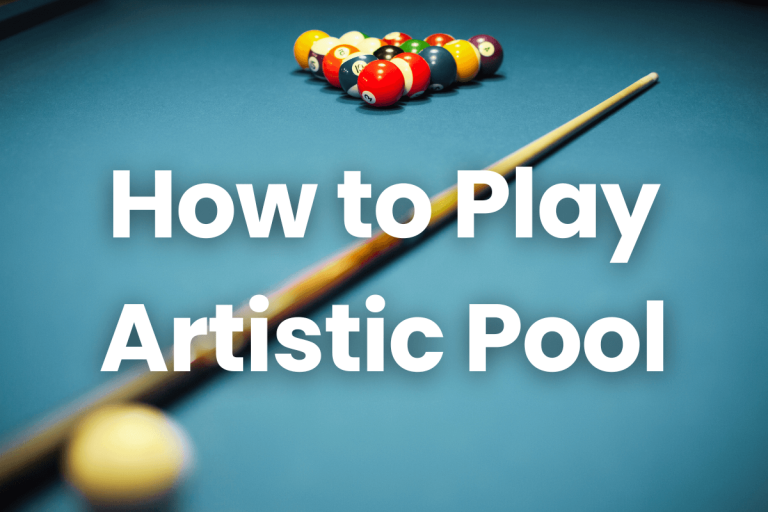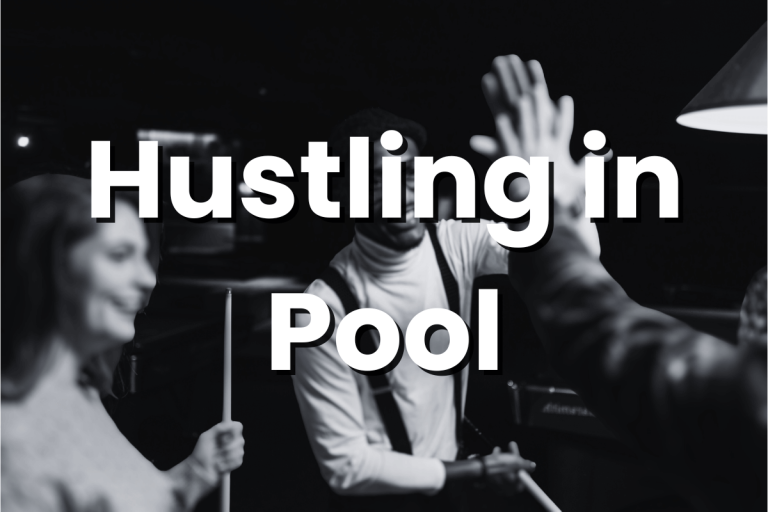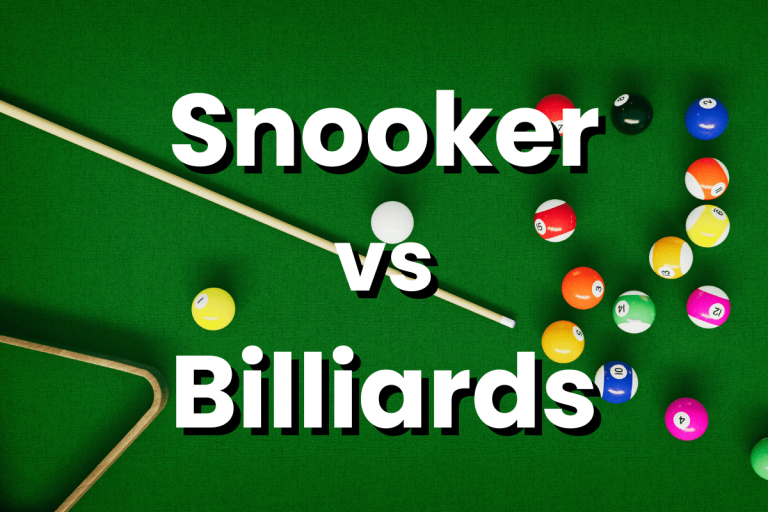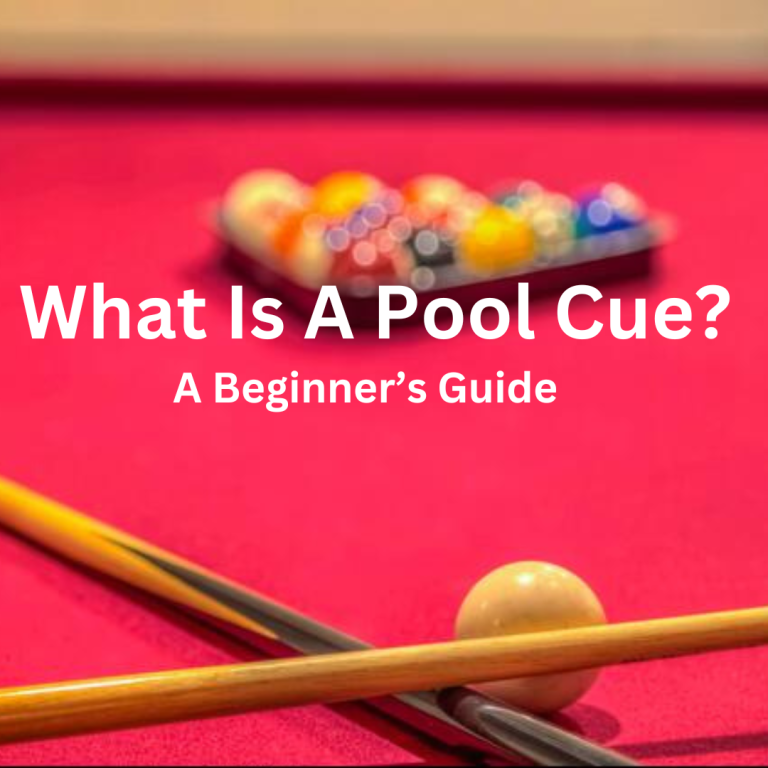How to Play Pool Professionally: A Comprehensive Guide (2023)
Playing pool professionally isn’t just about making some fancy shots or winning a few games at your local bar. It’s a whole world of precision, strategy, and yes, a fair share of fun.
Improve your pool skills and learn how to play pool professionally. If you’re thinking about going pro, I have one piece of advice: practice, practice, practice! There’s no substitute for hard work and dedication. But if you’re willing to put in the time and effort, you can achieve anything you set your mind to.
I’ll share everything I’ve learned about playing pool professionally in this guide. I’ll cover everything from the basics to advanced techniques, and I’ll give you tips on how to improve your mental game.

What is the professional pool?
A professional pool is a competitive sport where players compete for prize money and ranking points. where players compete at the highest level. They aim for precision, strategy, and that winning shot. It’s a chance to showcase your skills and passion on the green felt stage.
How to become a professional pool player
If you’re serious about becoming a professional pool player, there are a few things you need to do:
- Get good at the basics. This includes things like stance, grip, aiming, and stroking.
- Practice regularly. The more you practice, the better you’ll become.
- Compete in tournaments. The best way to improve your game is to compete against other players.
- Get coaching. A good coach can help you identify your weaknesses and develop a plan to improve.
- Network with other players. Networking can help you learn from other players and get opportunities to compete in tournaments.
For professional pool players The Best Pool Cues For Professional…
Fundamentals
The fundamentals of the pool are the foundation of a good game. If you don’t have a solid understanding of the fundamentals, you’ll never be able to reach your full potential.
Here are the most important fundamentals of pool:
- Stance: Your stance is the position of your body when you’re shooting. A good stance will help you maintain your balance and generate power.
- Grip: The grip is how you hold the cue stick. A good grip will help you control the cue stick and deliver the cue ball accurately.
- Aiming: Aiming is the process of determining where you want the cue ball to go. A good understanding of aiming will help you make more shots.
- Stroking: The stroke is the movement of your arm and hand that delivers the cue ball to the target ball. A smooth and consistent stroke is essential for making good shots.
Different types of shots
There are many different types of shots in the pool. Some of the most common types of shots include:
- Straight shots: Straight shots are the simplest type of shot. To make a straight shot, simply aim the cue ball at the target ball and stroke the cue stick smoothly.
- Bank shots: Bank shots are shots where the cue ball hits one cushion and then hits the target ball. Bank shots can be used to change the direction of the cue ball or to make difficult shots.
- Combination shots: Combination shots are shots where the cue ball hits multiple balls in a row. Combination shots can be used to clear the table or to set up a shot on the next ball.
- Jump shots: Jump shots are shots where the cue ball is lifted off the table and then hit into the target ball. Jump shots can be used to make difficult shots or to get out of trouble.
Pool table geometry
Pool table geometry is the study of the relationship between the different parts of a pool table. A good understanding of pool table geometry can help you make more accurate shots.
Here are some basic principles of pool table geometry:
- The angle of incidence equals the angle of reflection. This means that the angle at which the cue ball hits the cushion will be equal to the angle at which it bounces off the cushion.
- A straight line will travel the shortest distance between two points. This means that the shortest path for the cue ball to travel from the cue ball to the target ball is a straight line.
- The cue ball will follow the path of least resistance. This means that the cue ball will tend to go towards the cushion that is closer to it.
Advanced Techniques for how to play pool professionally
Playing pool like a professional involves mastering advanced techniques that go beyond the basics. Here are some key strategies and skills to elevate your game:
- Precision Aiming: Develop a precise aiming system. Professionals often use techniques like the ghost ball method or the diamond system for bank shots. These methods require practice but significantly improve accuracy.
- Cue Ball Control: Mastering cue ball control is crucial. Understand how to apply spin (English), including topspin, backspin, and side spin, to control the cue ball’s path after it hits an object ball. This skill is key for positioning the cue ball for your next shot.
- Speed Control: Learn to control the speed of your shots. Different shots require varying degrees of force. A soft touch can be as important as a powerful break.
- Strategic Play: Think several shots ahead. Professionals plan their run-outs (clearing the table) by selecting the right sequence of balls, considering both the ease of the current shot and the position for the next.
- Defensive Strategies: Sometimes the best shot is a safety shot, where you position the cue ball in a spot that leaves your opponent without a direct shot.
- Kick and Bank Shots: Practice kick (using cushions to hit your target ball) and bank shots (bouncing the object ball off a cushion into a pocket). These are invaluable in situations where a direct shot is not possible.
- Mental Game: Pool is as much a mental game as it is a physical one. Develop focus, confidence, and the ability to recover from mistakes. Keeping a cool head under pressure is a hallmark of a professional player.
- Routine and Practice: Establish a consistent pre-shot routine and stick to it. Regular practice, including drills and playing under different conditions, is essential.
- Physical Fitness and Posture: Maintain good physical health, as endurance and a steady hand are important. Pay attention to your stance and bridge hand for stability and precision.
- Learning from the Best: Watch and learn from professional players. Notice their techniques, shot selections, and how they handle different situations.
Benefits of playing pool professionally
There are many benefits to playing pool professionally. For one, it’s a great way to make a living. Professional pool players can earn a good salary from prize money and sponsorships.
Playing pool professionally can also be a lot of fun. It’s a challenging and exciting game that allows you to compete against the best players in the world. And who knows, you might even become a world champion!
Final Thoughts
Playing pool professionally is not just about winning; it’s about the love of the game and the continuous journey of improvement. Whether you aim to become a pro or simply want to impress your friends at the local bar, this guide will equip you with the knowledge and skills to play pool like a true enthusiast. So, cue up, and let’s dive into the world of professional pool play!
FAQs
FAQ 1: How can I balance practice and other commitments while aiming to play pool professionally?
Great question! Balancing practice and life is a common challenge. One tip is to create a practice schedule that fits your routine. Think of it like squeezing in a workout; even short, focused sessions can make a big difference. I remember starting my pro journey while working a 9-to-5 job. With dedication and a well-planned schedule, I managed to improve steadily.
FAQ 2: What’s the best way to handle the pressure of professional pool tournaments?
Ah, pressure – it’s the real opponent sometimes! One tactic that helped me is mindfulness. Before a big game, I’d take a few deep breaths, visualize my success, and focus on the present moment. It’s like a mental warm-up. And remember, even the pros feel the heat. It’s about managing those nerves and turning them into a source of energy.
FAQ 3: Can you share a story of a memorable professional pool match you’ve played?
Absolutely! One match that stands out was a tournament final. The score was tied, and it all came down to the last shot. I had to bank the eight-ball to win. It was nerve-wracking, but I took a deep breath, remembered my training, and made the shot. The crowd erupted! It taught me the value of staying cool under pressure and trusting my skills.
FAQ 4: Do I need a coach to play pool professionally, or can I learn on my own?
Learning on your own is possible, but having a coach can accelerate your progress. They can spot flaws in your game that you might miss and offer personalized guidance. I worked with a coach early in my career, and it made a significant difference. Think of it as having a mentor to guide you on your journey.







